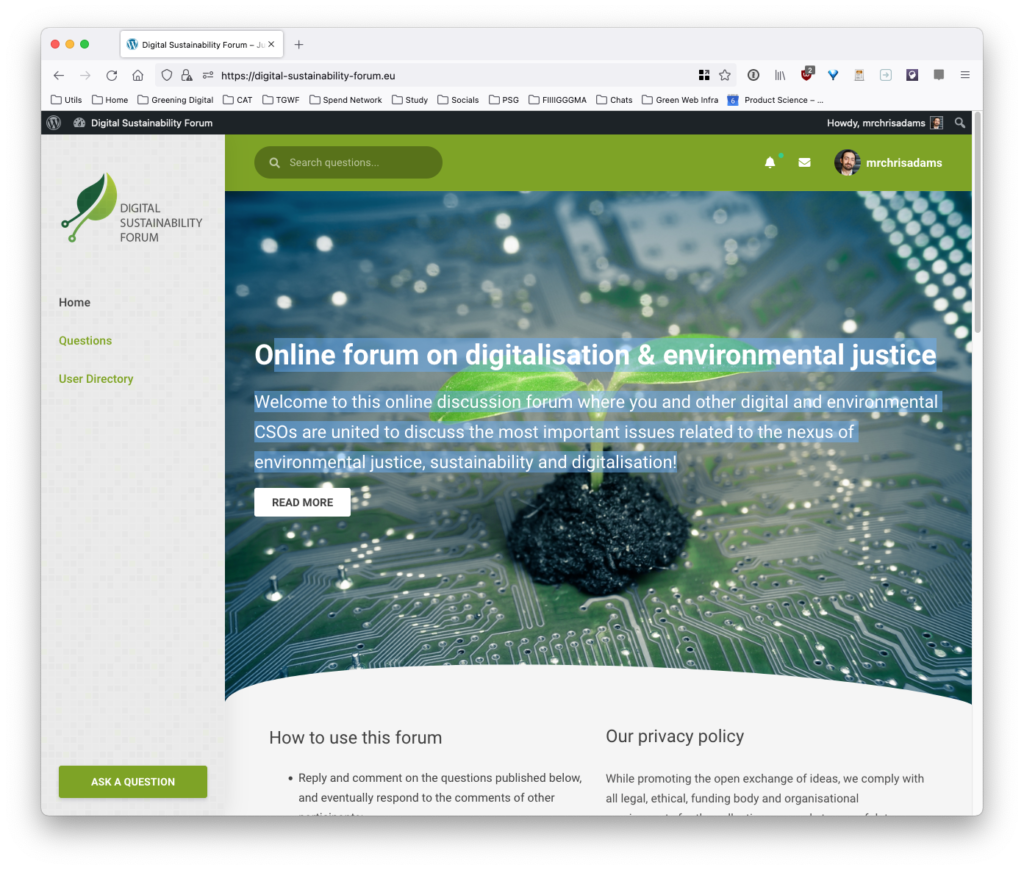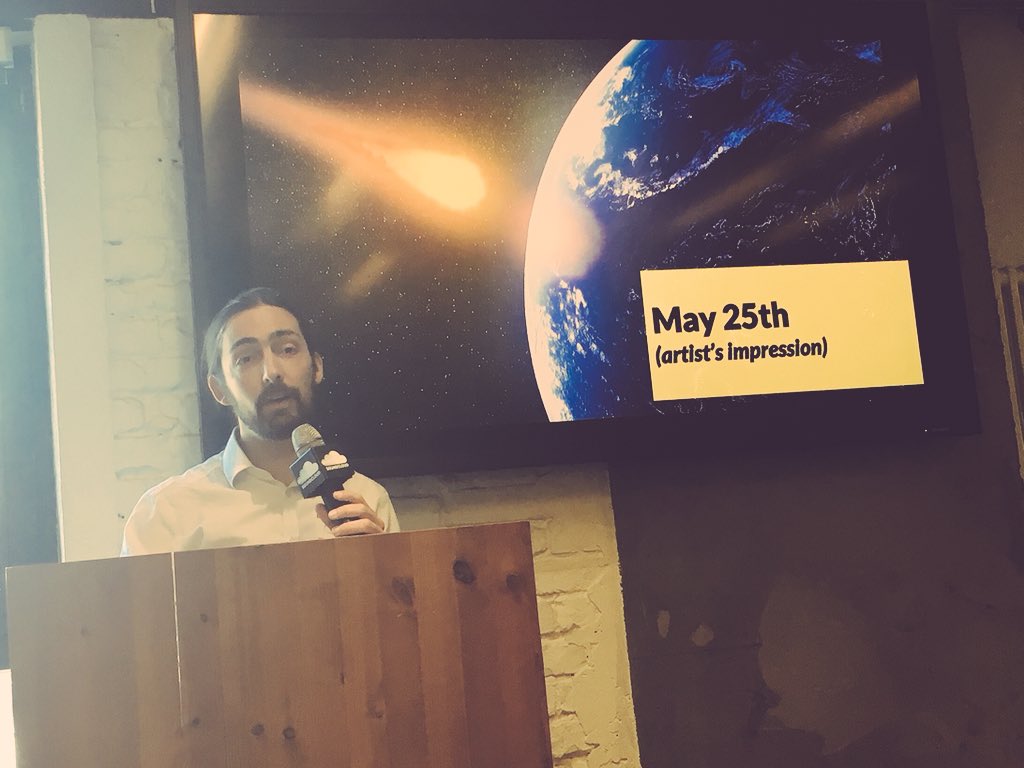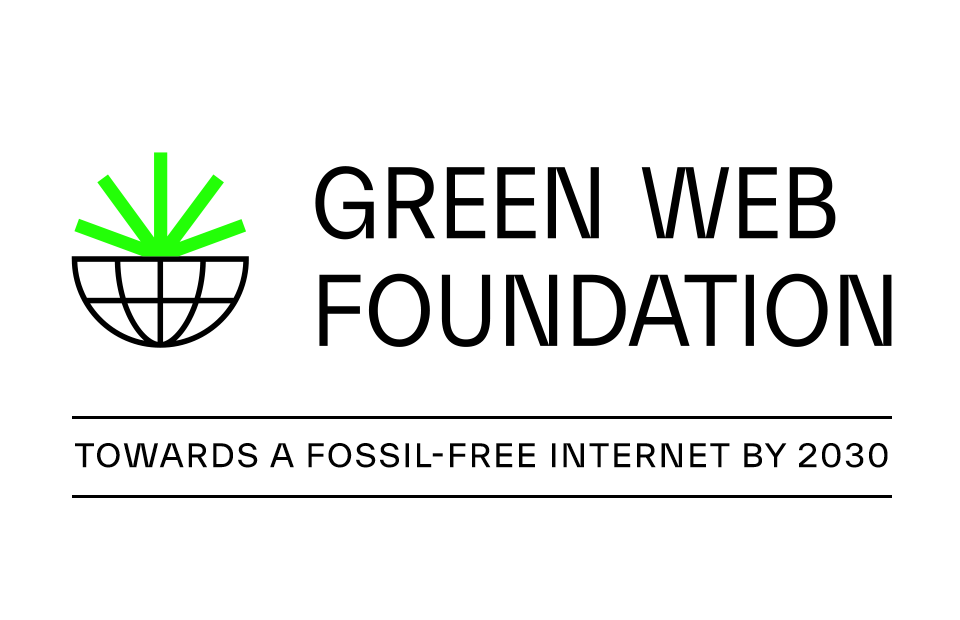Over the last few months, we’ve been part of the Digital Sustainability Forum, a research project funded by the German government, feeding into some of the questions asked. It’s been useful to take part, as it’s presented a handy venue for our recent research, as well as being a place for us to learn a few new things too. Read on for a quick summary of some of the questions and answers that came up.
Background – what is the Digital Sustainability Forum?
As we’ve mentioned in our own recent report, The Fog Of Enactment, there’s been an uptick in interest in the se of technology as a lever for helping achieve sustainability goals, and in Europe at least we’ve seen a number of studies funded now. One such study is the Digital Sustainability Forum, run by the Institute for European Environmental Policy (IEEP), and Institute for Ecological Economy Research (IÖW) – the findings here would be helping inform how laws are made relating to sustainability in the coming months.
It took the form of an internal facing wordpress website, where researchers, campaigners and various experts were invited to a forum to share their answers to questions related to the intersection of sustainability and digitalisation. If you’re curious, it looked like this.

What kind of questions were covered?
A full report will be published later in the year, so we won’t go into too much detail, but we’ll summarise some of the key points we shared, as well as linking to some resources in the public domain, that we thought would be interesting to folks with an interest in the same intersection between sustainability and digital services.
We need different mental models for talking about how digital services have an impact
A common theme that came up in questions, but also one we’ve seen in the media, is the idea that of reducing our use of digital services, to save on the environmental footprint they create. While there are definitely links between the use, and footprint of some services – the mental model we apply is important.
If we think of the way we use digital services, and how they pollute the same way we use cars driving down roads and they pollute, you can totally see why you might want to try regulating things like how much data is sent over wires. This is turning into an increasingly common media theme – moralising over people’s use of Netflix, and in France we’re now seeing legislation along these lines too.
However, there’s increasing evidence that this model doesn’t map to how pollution is really caused.
If networks use the about same amount of electricity, and pollute about the same regardless of how much data they’re carrying, then trying to reduce impact by reducing how much data is sent over them is a bit like trying to reduce the environmental impact of bike lanes after they’ve been built, by getting people to cycle on them less.
If a significant amount of the footprint from digital services comes from electricity, then greening the electricity is crucial
It’s unsurprising that this is thing we’d say, but it really, really bears repeating. We need a fossil free internet by 2030.
As members of society we already have legal levers we can use to help inform policy, that we could use better
Given that a significant part of the climate crisis down to a small number of groups capturing benefits, and shifting the costs onto literally everyone else, having information in the public domain to inform policy is important
You might be familiar with sites like What Do They Know, or Fragen Den Staat’s with their Klima helpdesk, or the Climate Emergency Explorer that Mysociety have worked on. These largely rely on “Freedom of information” style legislation that compels public bodies to respond in a given time period.
When it comes to sustainability however, we have other levers that aren’t being used so much, that can help here. Last year, when we saw a landmark judgement to compel Shell Oil to reduce their emissions, it came down to campaigners using the human rights act as a basis, as this interview explains.
In Europe at least, there’s legislation that was reviewed last year that can help, based around the Aarhus convention to make sure members of the public have access to justice.
Regulation needs effective enforcement to be effective
However, just like we saw with recent data protection laws like GDPR, even if a law can look world-changing, if there isn’t funding and resources available to make sure the law is followed, then it’s going to have much less of an impact.
Back in 2018, before the changes to the law around GDPR had landed, there was enough interest to run an unconference around the subject called OMGDPR, and this slide here gives an idea of the law landing was seen in some circles:

However, while there have obviously been some landmark cases, in many countries the amount of funding for the agencies responsible for actually checking the law is followed has remained fairly small. This has led to an uneven response from companies to the law.
The same applies with sustainability – while there have been some victories – if there isn’t support for enforcing the laws, then there’s a danger that introducing new laws around climate in the digital sector will largely be followed in a similarly patchy way, and any sustainability goals we have as a society will not be met.
Where to find more
It’s very likely we’ll link to the report in our newsletter when it’s out, but in the meantime, one of the easiest ways to follow updates would be following the IEEP on twitter.



